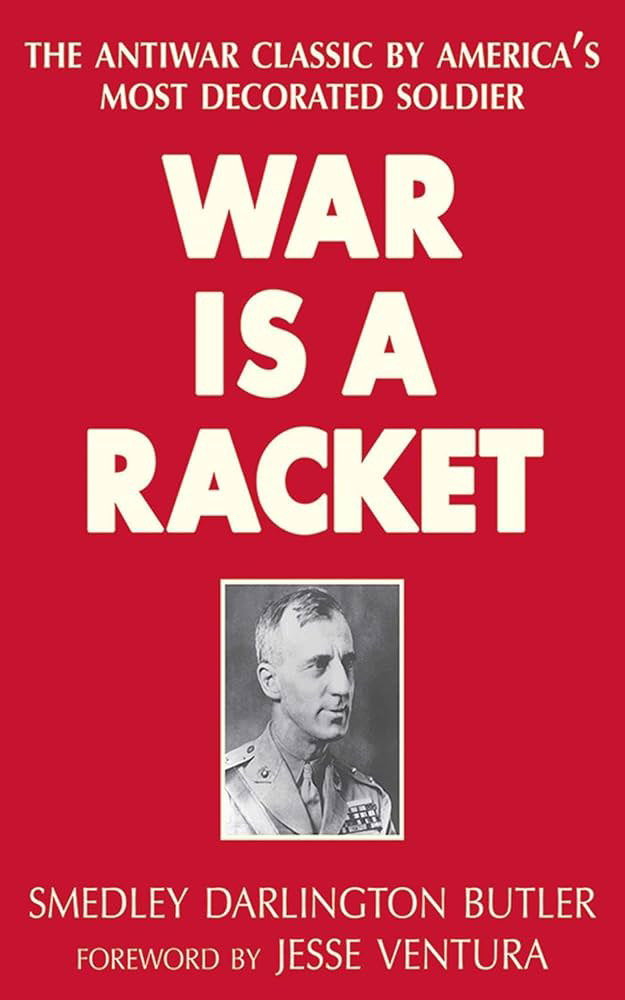We Can Afford Reparations, Disability Benefits, and More — If We Stop Choosing War: How the War Economy and Cultural Subversion Keep Us Trapped
Most Americans accept the military budget without question, but balk at reparations for Black descendants of slavery or the cost of disability benefits. The truth? We’re already spending trillions on war and weapons—money that could fully fund reparations and disability payments for a decade, while rebuilding our communities and healing the nation. This isn’t a fantasy or political wishful thinking. It’s cold, hard math.
$25 Trillion and Counting: The Price of War Since World War II
Since 1945, the U.S. has spent over $25 trillion on military operations, from Korea and Vietnam to Iraq, Afghanistan, and proxy wars like Ukraine. This includes weapons, personnel pay and benefits, military infrastructure, and related expenses.
Personnel costs alone—wages, housing, pensions, veterans’ healthcare, and schooling—account for roughly 30% of the defense budget, or about $7.5 trillion since WWII. (Source: Brown University Costs of War Project)
But what does this massive investment buy? Tens of thousands of combat deaths, millions more wounded physically and mentally, and over 30,000 veteran suicides since 2001—more than four times the number killed in combat. (Sources: U.S. Department of Veterans Affairs; Brown University)
Proxy Wars: The Hidden Continuation of the War Economy
Proxy wars, including the ongoing funding of Ukraine’s conflict, add billions yearly to this total. These wars extend the military-industrial complex’s reach, destabilizing regions while draining taxpayer money domestically. The $25 trillion figure does not include every recent expenditure, and the costs continue to rise with little public debate.
The Human Fallout: Veteran Suicides, Homelessness, and Toxic Legacy
An average of 22 veterans die by suicide every day, making suicide a leading cause of death for those who have served. (Source: VA statistics)
Many suffer PTSD, traumatic brain injuries, and moral injury from combat, but lack adequate care. Veterans constitute 13% of the homeless population while making up only 6% of the total U.S. population.
The 9/11 health crisis alone has caused at least 20,000 deaths due to cancers and respiratory diseases linked to toxic exposure, with an estimated $16 billion in medical and productivity losses.
Reparations vs. War Spending: The Stark Contrast
Conservative estimates for reparations to African Americans descended from slaves range around $12 trillion.
Ten years of Social Security Disability Insurance (SSDI) payments would cost roughly $1.5 trillion.
Combined, this is about $13.5 trillion—a figure dwarfed by trillions already spent on military ventures that neither repair nor protect the country’s most vulnerable.
Cultural Subversion: How the Music Industry and Private Prisons Profit from Violence
The connection between the military-industrial complex and the prison-industrial complex is no accident.
Ice Cube has admitted that groups like N.W.A. were nudged toward gangster rap themes by industry pressures — content that glamorized violence and criminality while obscuring other messages they might have wanted to share. Later, it was revealed that many executives pushing this music had direct financial ties to private prisons, profiting from incarceration rates fueled by the very cultural narratives they promoted.
Kurt Metzger, in his recent podcast interview, pointed out how this extends into drill rap culture. He described drill rap as a form of sigil magic — a ritualistic, symbolic language that influences energy and behavior, driving cycles of violence and despair. When artists like Lil Durk try to turn their lives around, they face suspicion, backlash, or worse — as if the system punishes healing and rewards chaos.
MK Ultra and Monarch Programming: The Covert Mind Control Legacy
Metzger also revealed a crucial insight: the long-rumored Monarch MK Ultra files—documents proving decades of psychological programming and mind control experiments—were quietly declassified a couple of years ago. Yet, the mainstream barely noticed because the news was drowned out by sensational headlines about Tic-Tac UFOs.
As Metzger put it:
“I used to talk about Monarch programming and MK Ultra, and people called me crazy. Then when it finally was declassified, even I didn’t notice at first—it was buried under the Tic-Tac UFO story. The gaslight is so thick, you could suffocate in it.”
This is a classic reveal-and-distract tactic: disclosing uncomfortable truths while simultaneously flooding the media with distractions.
Jeremy Rys (AlienScientist) and the Tic-Tac UFO Psy-Op
The UFO hype surrounding the Tic-Tac sightings isn’t just random or innocent curiosity. Jeremy Rys, known as AlienScientist and a respected UFO researcher, explained on the Concrete Podcast with Danny Jones that the Tic-Tac phenomenon likely represents satellite-based holographic projection technology or advanced plasma weapons systems — not extraterrestrials.
This technology serves as a psychological operation (psy-op) to misdirect public attention from deeper, more disturbing realities like covert mind control programs and systemic social manipulation.
The Path Forward: Investing in Peace, Reparations, and Healing
Imagine redirecting even a fraction of the trillions spent on war into:
- Feeding millions of hungry families
- Providing comprehensive disability care and mental health support
- Rebuilding infrastructure with clean energy, creating millions of jobs
- Funding education that empowers rather than divides
- Supporting community health initiatives that heal and protect
These aren’t pie-in-the-sky dreams—they are achievable if the nation shifts priorities.
As Tupac Shakur famously said,
“We have money for wars, but can’t feed the poor.”
This blunt truth still echoes. The money exists; the problem is the choice to spend it on destruction, profit, and control rather than repair and justice.
Sources and Further Reading
- Brown University Costs of War Project: https://watson.brown.edu/costsofwar/
- U.S. Department of Veterans Affairs Suicide Data: https://www.mentalhealth.va.gov/suicide_prevention/data.asp
- Social Security Administration SSDI Facts: https://www.ssa.gov/benefits/disability/
- Economic Impact of Military Spending vs. Other Sectors: https://watson.brown.edu/costsofwar/papers/2021/JobCreation
- Kurt Metzger podcast: https://youtu.be/wyLLIA8I8ME?si=v7wUQwzs32yBPsBy
- Concrete Podcast with Danny Jones feat. Jeremy Rys: [Link to Concrete Podcast] (please provide if you want it embedded)

